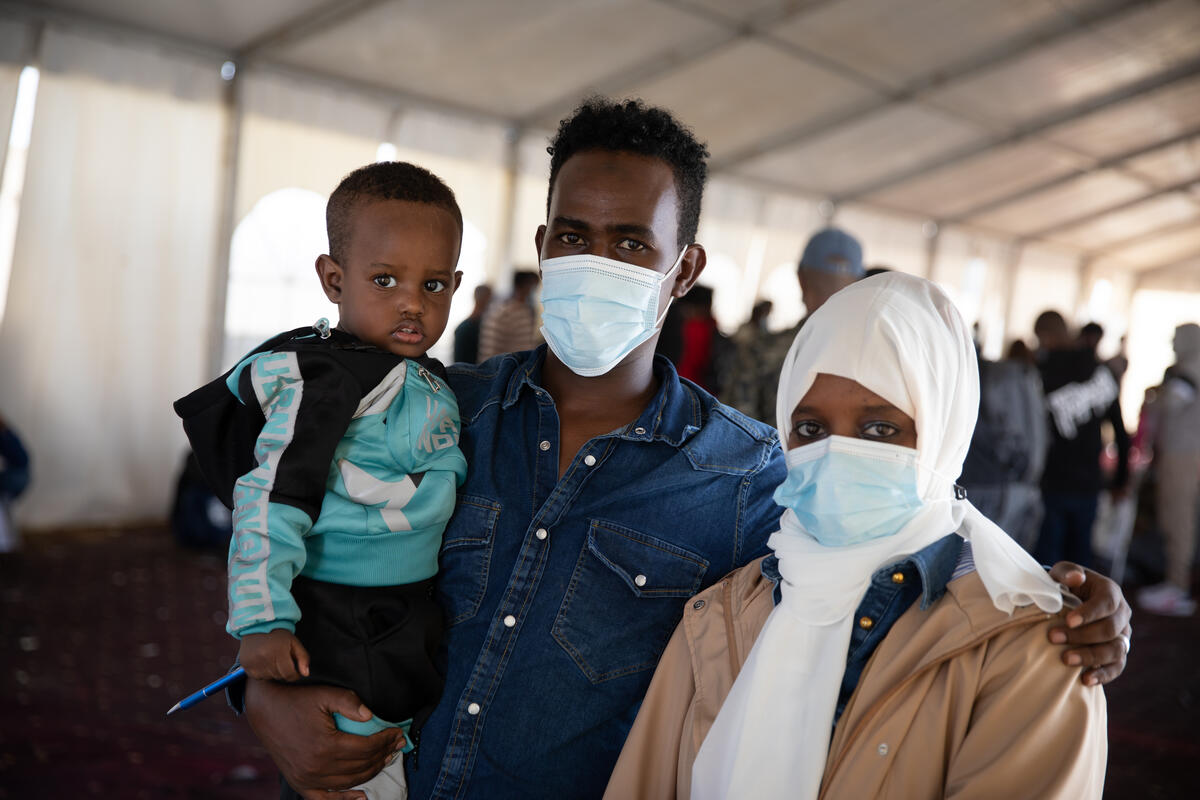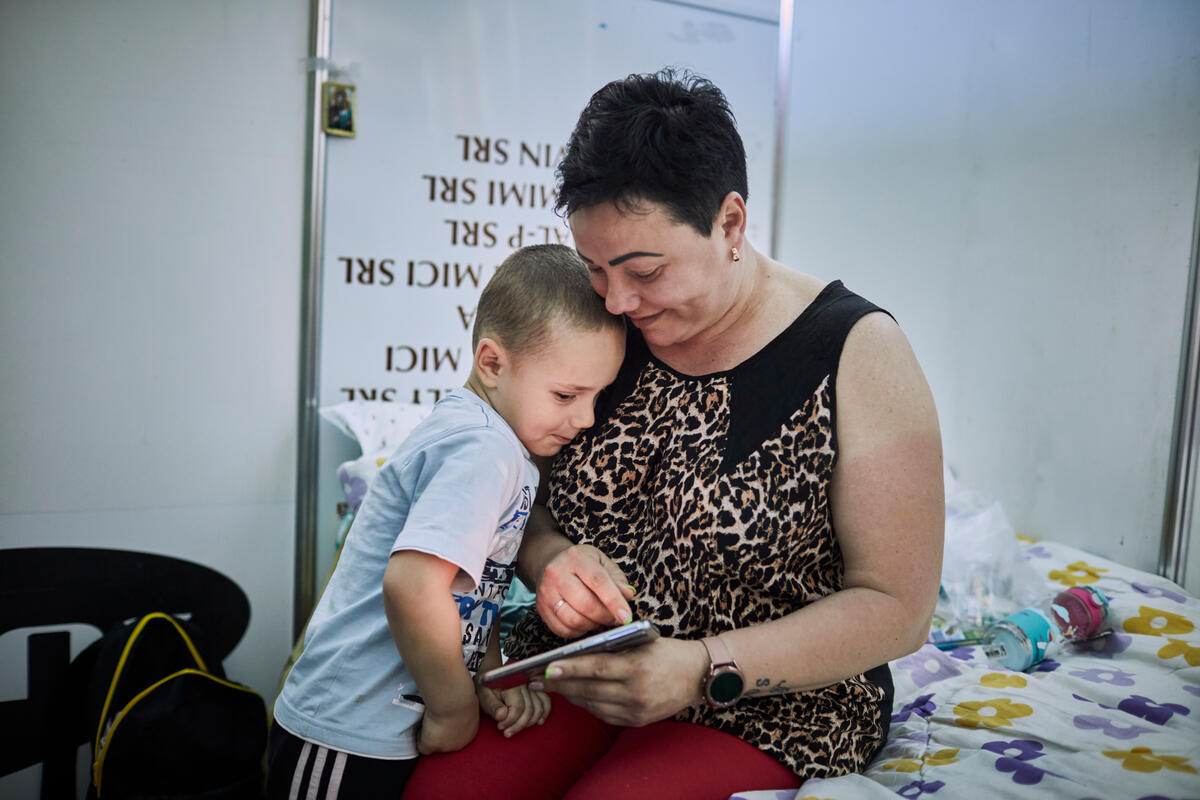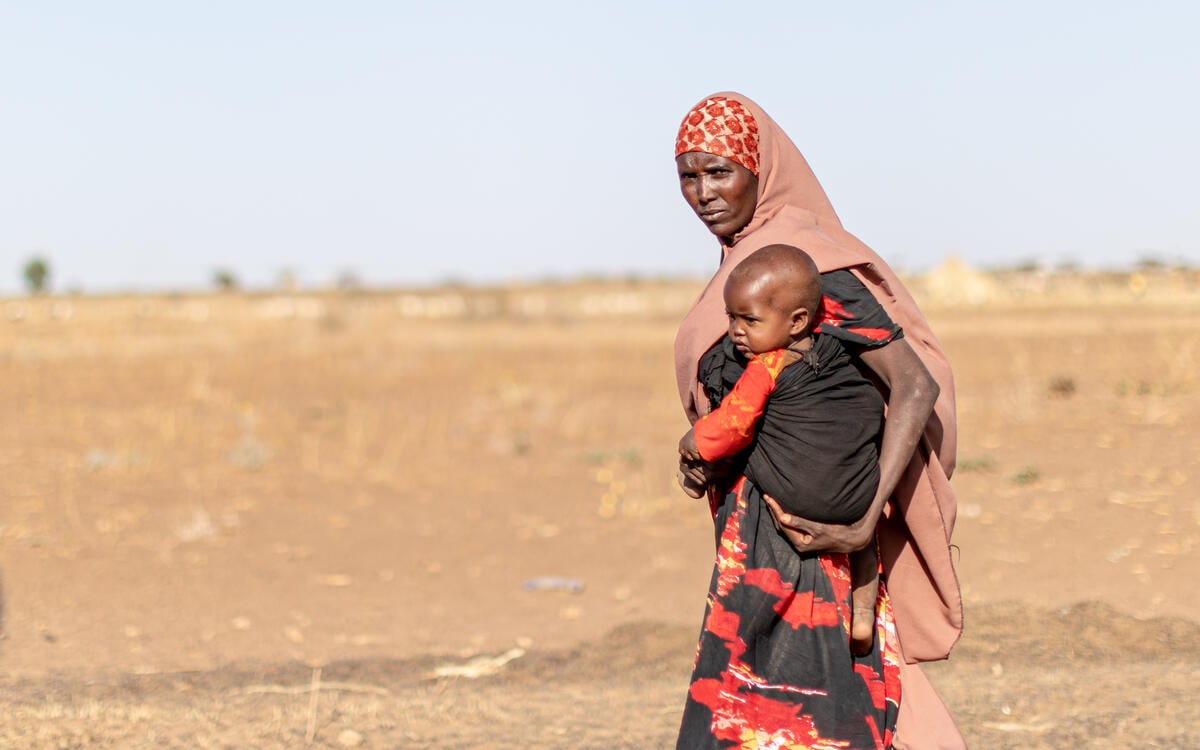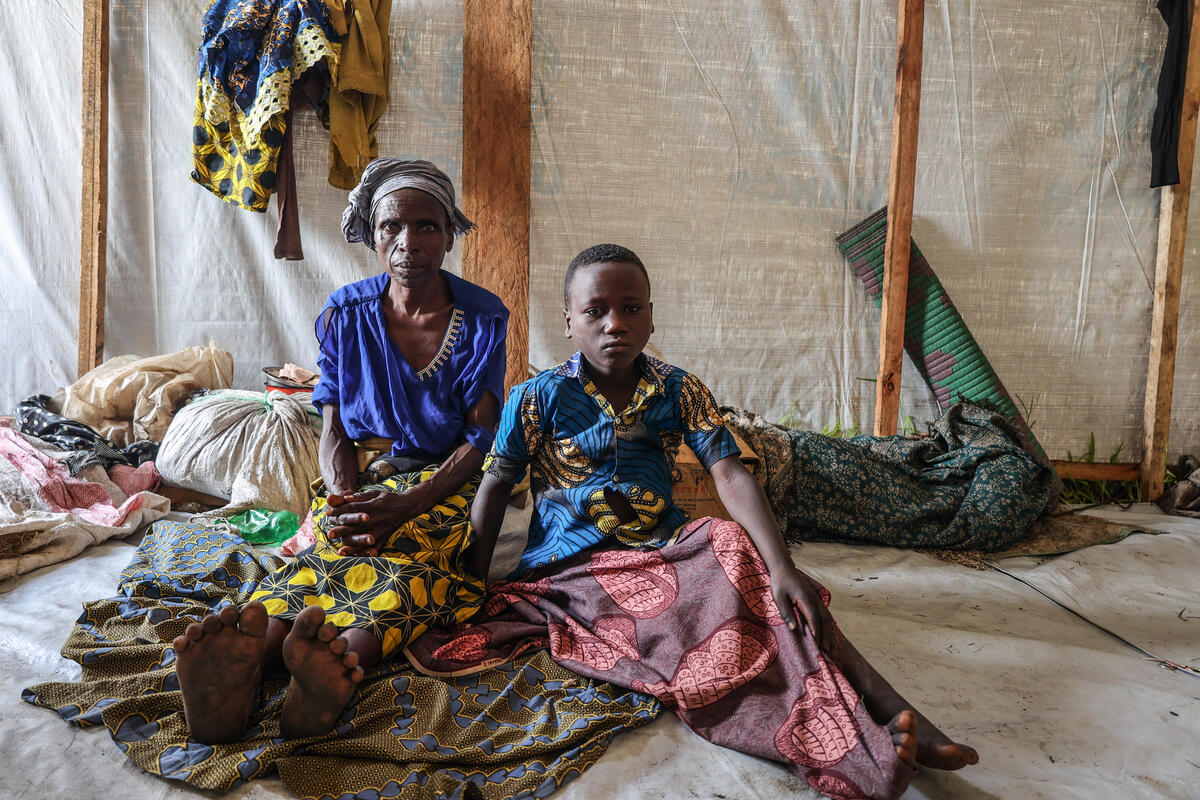Relief for asylum seekers offered a new life outside Libya
Relief for asylum seekers offered a new life outside Libya

An atmosphere of excitement and anticipation spreads among the group of women, children, and men queueing outside a building in the Libyan capital Tripoli. Inside, staff members from UNHCR, the UN Refugee Agency, are preparing to provide counselling, help with processing documents and to distribute travel items to the group.
A short while later, smiles and tears of relief break out among the group when they learn that they will be on board the first evacuation flight from Libya to Italy for two years. COVID-19 and border closures had meant no flights could operate in 2020, while for much of this year, humanitarian flights had been blocked by the Libyan Directorate for Combatting Illegal Migration.
Those selected include some of the most vulnerable asylum seekers in the country. Many are women and children, survivors of violence or have a serious medical condition. All have faced terrible circumstances in their country of origin and, later, great danger and difficulties in Libya.
"Being a woman alone is tough."
Eritrean mother, Hayat, aged 24, arrived in Libya in 2017, after making a dangerous crossing through the desert. Her husband was shot dead by smugglers when the couple were unable to pay a ransom demand for their release.
“They killed him before my eyes, and they beat me,” she recounted. Hayat was seven months’ pregnant at the time and said the following years were a huge struggle to provide for her son.
“I suffered…in order to get him food and drink and pay the rent. Being a woman alone is tough. Being with a child, with no job and no-one helping you, you are really alone,” she said.
On arrival in Libya, many migrants, refugees and asylum seekers face dangers, including exploitation and abuse at the hands of traffickers or smugglers.
“I’m so happy I could fly!” Hayat exclaims. “Thank God, I’m going to travel. I need to leave. I need a safe place where I can raise my son.”
The group will be the first of 500 people admitted to Italy over a one-year period. The flights are organized under a new mechanism, which combines emergency evacuations with the humanitarian corridors that have been established in Italy since 2016. While mainly funded by the Government of Italy, the flights are also supported by a coalition of faith-based organizations, which includes the Community of Saint Egidio, the Federation of Protestant Churches and the Waldensian Table.
Zahra, a 48-year-old Sudanese mother of three, could barely scrape together the money for her taxi fare to attend the appointment, but she’s happy she made the journey.
She has lived in Libya for over twenty years. All her children were born in the country, but none have official documentation except for their UNHCR asylum certificate.
Her eldest son, Mohamed, aged 17, is wheelchair-bound, after being hit by a bullet in his spine in 2014 as conflict raged. He had been playing outside the house where the family lived in the eastern city of Benghazi, where Zahra’s husband managed to find odd jobs to support the family.
“My son can’t talk or move anymore, but I am still confident he will recover. I have to take care of him all day-long,” she said.
Doctors could do little to help at that time. There was no let-up in the conflict and healthcare premises were barely functioning due to a lack of medical equipment and continuous electricity cuts.
The family left for Tripoli to seek greater safety, but then Zahra’s husband died, leaving her with three children and no-one to turn to.
“My only wish is to get treatment for my son,” Zahra said.
- See also: Libya: First evacuation flight to Niger in over a year brings 172 asylum-seekers to safety
Seated on a sidewalk outside the building, a young Somali man named Abdsamad and his wife were sharing the good news by phone with other relatives. Abdsamad had been living as a refugee in Ethiopia since 2001 before moving to Libya a few years ago.
“It has been very difficult. When you do not have legal status in the country, you can’t even rent a house or get health assistance.”
“I’m thankful now that I’m travelling. I’m thinking about future, and the future of my children. Hopefully, it will be good.”











